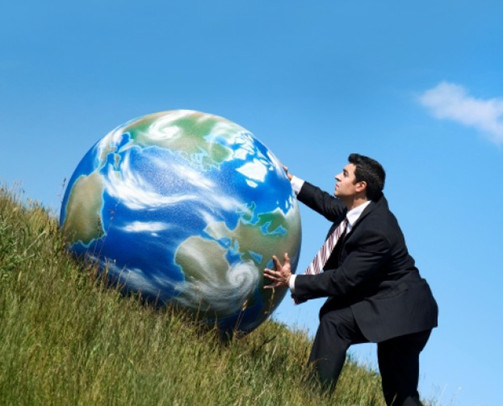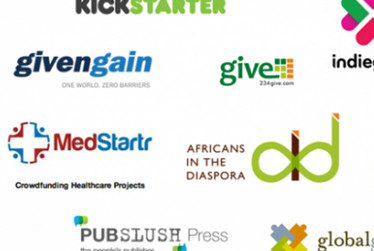|
 |
к°ҖмҶҚнҷ”лҗҳкі мһҲлҠ” м•Ҫн’Ҳ к°ңл°ңкіј к·ё мғҒм—… |
|
| 1970л…„лҢҖ кҙ‘лІ”мң„н•ң м •ліҙкё°мҲ кіј 분мһҗмң м „н•ҷмқҳ л“ұмһҘмңјлЎң кұ°мқҳ м „ 분야к°Җ нҸӯл°ңм ҒмңјлЎң м„ұмһҘн–Ҳкі , мқҙм ң мғҲлЎңмҡҙ кё°мҲ мқҳ кҙ‘лІ”мң„н•Ёмқҙ к·ёлҹ¬н•ң 진ліҙлҘј л№ лҘҙкІҢ мқјк¶ҲлӮҳк°Җкі мһҲлӢӨ. |
|
|
 |
м„ёкі„м—җм„ң к°ҖмһҘ мӨ‘мҡ”н•ң л¬ём ңл“Ө The |
|
| мҳӨлҠҳлӮ 24мӢңк°„ лүҙмҠӨ мӢңмҠӨн…ңмқҙ м •м°©н•ҳл©ҙм„ң, мҡ°лҰ¬лҠ” мқҙ лҜёл””м–ҙлҘј нҶөн•ҙ мҡ°лҰ¬к°Җ м–ҙл–Ө мң„кё°м—җ м§Ғл©ҙн•ҙмһҲлҠ”м§Җ мғҒмӢңм ҒмңјлЎң м•ҢкІҢ лҗҳм—ҲлӢӨ. м–ҙл–Ө кІғмқҖ лӢЁкё°м Ғмқҙкі м–ҙл–Ө м ҒмқҖ мӨ‘мһҘкё°м Ғмқё мқҙ мң„кё°лҠ” нҳ„мһ¬ мҲҳм—Ҷмқҙ л§ҺлӢӨ. к·ёл ҮлӢӨл©ҙ мқҙ мҲҳл§ҺмқҖ мң„кё°лҘј м–ҙл–»кІҢ л°”лқјлҙҗм•ј н• кІғмқёк°Җ? мӢңмһ‘мқҖ мҲҳл§ҺмқҖ мһ мһ¬м Ғ мң„кё°к°Җ л¬ҙм—Үмқҙкі , мқҙлҹ¬н•ң мң„кё°к°Җ м–ҙл–»кІҢ н•ҙкІ°лҗ мҲҳ мһҲлҠ”м§ҖлҘј мқҙн•ҙн•ҳлҠ” кІғмқҙлӢӨ. к·ёлҰ¬кі лҚ” мӨ‘мҡ”н•ң кІғмқҖ м–ҙл–Ө мң„кё°к°Җ к°ҖмһҘ нҒ° кІғмқём§Җм—җ мҡ°м„ мҲңмң„лҘј л§Өкё°лҠ” кІғмқј кІғмқҙлӢӨ. |
|
|
 |
лҮҢлҘј мҲҳлҰ¬н•ҳкі мҰқк°•н•ҳлӢӨ Repairi |
|
| лҮҢ кіјн•ҷмқҖ мқёлҘҳ кіјн•ҷ кё°мҲ мқҳ мғҲлЎңмҡҙ к°ңмІҷ 분야 мӨ‘ н•ҳлӮҳмқҙлӢӨ. лҮҢлҠ” мқёмІҙ мӨ‘ к°ҖмһҘ мӨ‘мҡ”н•ң кё°кҙҖмқҙкі , мҡ°лҰ¬к°Җ лҲ„кө¬мқём§Җм—җ лҢҖн•ң л¬јлҰ¬м Ғ кө¬нҳ„мІҙлӢӨ. мҠӨнӢ°лёҗ нҳёнӮ№ көҗмҲҳлҘј ліҙлқј. к·ёлҠ” л§Ҳ비лЎң мӣҖм§Ғмқҙм§Җ лӘ»н•ҳлҠ” л¬ҙлҠҘл Ҙн•ң мӢ мІҙлҘј к°ҖмЎҢм§Җл§Ң к·ёмқҳ лҮҢлҠ” лҶҖлқјмҡҙ мқјмқ„ н•ҙлӮҙкі мһҲлӢӨ. |
|
|
 |
лҜёлһҳлҘј лҜёлҰ¬ нҢҗл§Өн•©лӢҲлӢӨ Pre-Sel |
|
| мҶҢ비мһҗ, мһҗм„ к°Җ к·ёлҰ¬кі нҲ¬мһҗмһҗл“Өмқҙ мғҒн’Ҳ, мһҗм„ мӮ¬м—…, к·ёлҰ¬кі мӮ¬м—… м•„мқҙл””м–ҙл“Өмқҙ нҳ„мӢӨмқҙ лҗҳкё° нӣЁм”¬ м „м—җ мқҙлҘј м§Җмӣҗн•ҳкі м„ лҸ„н• кёёмқ„ лӘЁмғүн•ҳкі мһҲлӢӨ. нҠёл Ңл“ңмҷ“м№ӯлӢ·м»ҙ(Trendwatching.com)мқҖ н”„лҰ¬мҠҲлЁё(presumer)лЎң м–ёкёүн•ң мқҙл“Өмқ„ мӢ нқҘ мқёкө¬лЎңм„ң мЎ°л§қн•ң л°” мһҲлӢӨ. |
|
|
 |
кіјн•ҷ мӮ¬кё°лҘј лӢӨлЈЁлҠ” лІ• Dealing |
|
| кіјн•ҷ м—°кө¬лҠ” м„ёкі„м—җ лҢҖн•ң мқёк°„мқҳ мқҙн•ҙлҘј мҰқ진мӢңнӮӨкё° мң„н•ҙ м„Өкі„лҗңлӢӨ. к·ёлҹ¬лӮҳ к·ёлҹ¬н•ң м—°кө¬м—җ кі мқҳм Ғмқё кІ°н•Ёмқҙ мһҲлӢӨл©ҙ, мҰү мқҳлҸ„м ҒмңјлЎң мЎ°мһ‘мқ„ к°Җн•ңлӢӨл©ҙ, к·ё кІ°кіјлҠ” лӢЁмҲңнһҲ вҖҳк°Җм№ҳк°Җ м—ҶмқҢвҖҷ мқҙмғҒмқҙлӢӨ. мҷңлғҗн•ҳл©ҙ нҡҢліөн•ҳкё° л„Ҳл¬ҙлҸ„ м–ҙл Өмҡҙ н”јн•ҙлҘј мһ…нһҲкё° л•Ңл¬ёмқҙлӢӨ. |
|
|






 [244]ұЗ
[244]ұЗ 




